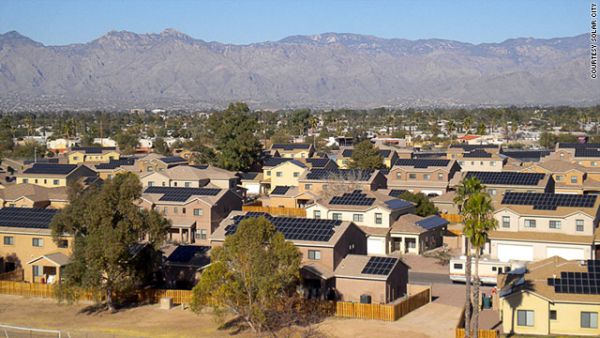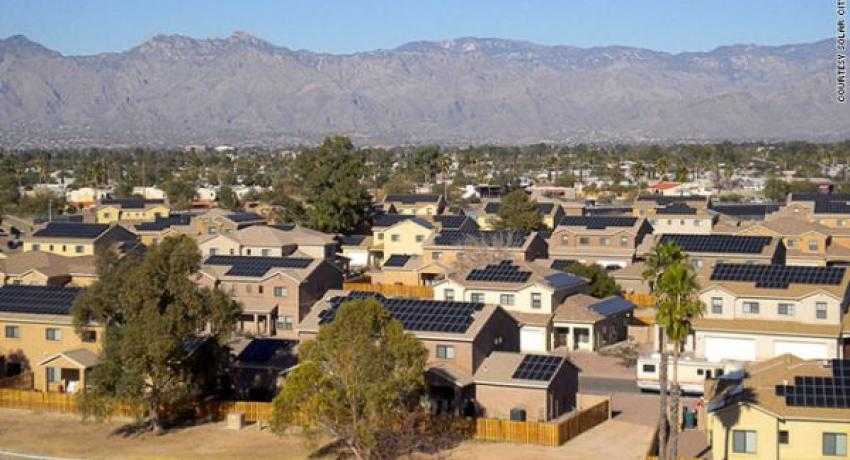Solar advocates fight for bigger payouts from Arizona Public Service
 The Alliance for Solar Choice (TASC), is launching a counter attack on Arizona utilities that have said they want to eliminate net metering.
The Alliance for Solar Choice (TASC), is launching a counter attack on Arizona utilities that have said they want to eliminate net metering.
Net metering laws require investor-owned utilities to credit electric customers who install rooftop solar panels at the retail rate for the power they generate.
The Arizona group that has been fighting a movement to end net metering sent a letter earlier this week to the Arizona Corporation Commission to require Arizona Public Service to provide greater compensation to homeowners who install solar arrays.
“Customers with rooftop solar systems are not fairly compensated for the many benefits these systems provide to the grid,” according to a press release from TASC, “including avoided costs for conventional power generation and new power plants, reduced investments in transmission and distribution infrastructure, and avoided costs associated with meeting renewable energy requirements.”
A benefits and costs analyses of solar distributed generation for Arizona Public Service was published in May, revealing that the utility will receive $34 million in benefits from solar installations, according to the TASC release.
TASC asked the Corporation Commission, which regulates APS, to require the utility to develop a “system-benefit credit” that could be allocated to distributed solar customers, compensating them for the capital investment they made in electricity generation equipment for the utility company.
The credit would be an additional payment on top of the net metering benefit.
The TASC letter argues that structuring and distributing the credit should be easy and could either be based on the capacity of a system or its energy output.
“Regardless of which type of credit is used, the Commission and APS can integrate the credit into current rate structures without novel concepts or methodologies,” the letter reads.
While utility companies in Arizona and other parts of the country argue that net metering benefits are too large because they’re based on the retail rates customers pay for electricity when the other power the utilities buy is acquired at a much cheaper wholesale rate, solar advocates argue the utilities are getting an unfair bargain.
Distributed rooftop solar power generation helps utilities avoid significant costs and requires utility customers to make a major capital investment in electricity generating equipment used by the utility company. That’s the basis of the argument solar advocacy groups like TASC are making when they say utilities aren’t paying large enough rebates and subsidies to solar customers.




